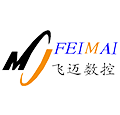Office address: No.60 Qilu Xinmao Technology Park, Tianqiao District, Jinan City , Shandong Province
Factory Address: No.168 Yuhuang Road, Shanghe High-tech district, Jinan City, Shandong Province
Consultation hotline:0531—68823861
Mobile phone:186 5313 1585
Fax:0531—88676600
Wechat number:186 5313 1585

May 5th (June 12th) of the summer calendar is a traditional Chinese folk festival, Dragon Boat Festival, which is also listed as a national statutory holiday. On the day of Dragon Boat Festival, our company will have a day off, which will bring inconvenience to your shipment. I hope you can make a reservation in advance and make a good purchase plan.
Holiday travel, please pay attention to the safety of travel, take advantage of this to leisure for busy life, to beautiful places to relax the tension, and then savor our traditional delicious rice dumplings, save enough spirit to work again.
Let's also take this opportunity to discuss with our friends about our traditional festival, Dragon Boat Festival.
Dragon Boat Festival is the fifth day of May of the lunar calendar, also known as the Dragon Boat Festival, the Midday Festival, the May Festival, the Fifth Festival, the Ai Festival, the Dragon Boat Festival, the Double Noon Festival, the noon Festival and the Summer Festival. It was originally a summer festival to eliminate the plague. Dragon Boat Festival is the traditional festival of the Han people in China. The indispensable activities of this day have gradually evolved into eating zongzi, dragon boat racing, hanging calamus `artemisia, mugwort, fumigating atractylodes, Angelica dahurica and drinking realgar wine.
In the history of our country, the idea that Dragon Boat Festival is to commemorate Quyuan has a history of more than 1500 years. Legend has it that after Quyuan threw himself into the Miluo River, the local people immediately rowed boats to rescue him and went all the way to Dongting Lake, never to see Quyuan's body. At that time, on rainy days, boats on the lake gathered together near pavilions on the shore. When people learned that it was to salvage Dr. Qu, a wise minister, they rushed out again in the rain and scrambled to enter the vast Dongting Lake. For the sake of mourning, people go boating on rivers and rivers, and then gradually develop into dragon boat races. People were afraid that the fish in the river would eat his body, so they went home and put rice balls into the river to avoid the fish and shrimp spoiling Quyuan's corpse. Later, it became a custom to eat zongzi.
Quping (about 339 BC - 278 BC) is the original character of Quyuan, which is usually called Qu Yuan. It is also named after Yun, and has regular characters. It is a Han nationality. It was born in Danyang, the late Warring States Period of Chu (now Zigui, Hubei Province), and a descendant of Quxian, the son of Xiong Tong, king of Chu Wu. Although he was loyal to King Huai of Chu, he was repeatedly excluded. When King Huai died, he was exiled because he listened to the gossip and finally threw himself into Miluo River.
Quyuan is one of the greatest Romantic poets in China. He is also the earliest known famous poet in China and a world cultural celebrity. He created the style of Chuci and the tradition of Vanilla Beauty. His representative works include Lisao and Nine Songs.
Dragon Boat Festival, of course, can not do without the protagonist zongzi. It is another traditional custom of the Chinese people to eat Zongzi on the Dragon Boat Festival. Zongzi should be regarded as the most profound traditional food in Chinese history so far.
According to records, as early as the Spring and Autumn Period, millet was wrapped in tallow leaves (Zizania latifolia) to form horns, called "corns". Rice was sealed in bamboo barrels and roasted, called "tubular rice dumplings". In the Jin Dynasty, zongzi was officially designated as food for the Dragon Boat Festival. At this time, in addition to glutinous rice, the raw materials of wrapped zongzi are also added with Chinese medicine Yizhiren. The cooked zongzi is called "Yizhiren". Mixed with poultry and animal meat, chestnut, jujube, red beans, etc., rice varieties increased. Zongzi is also used as a gift for communication.
By the time of the flourishing Tang Dynasty, rice dumplings had been "white as jade", and their shapes appeared conical and diamond-shaped. There are records of "Tang Zongzi" in Japanese literature. In the Song Dynasty, there were already "sweet dumplings", that is, fruit into the dumplings. The poet Su Dongpo has a poem "See bayberry in Zongli sometimes".
Until today, every May 5th Dragon Boat Festival, Chinese people have to soak glutinous rice, wash rice leaves and wrap rice dumplings in every household, and there are more varieties of them. From the stuffing point of view, there are many kinds of stuffing in the north, such as Beijing jujube brown, while in the south, there are many kinds of stuffing, such as bean paste, fresh meat, eight treasures, ham, egg yolk and so on. The custom of eating zongzi has been prevalent in China for thousands of years and spread to Korea, Japan and Southeast Asian countries.


Scan
Focus on Fei Mai CNC